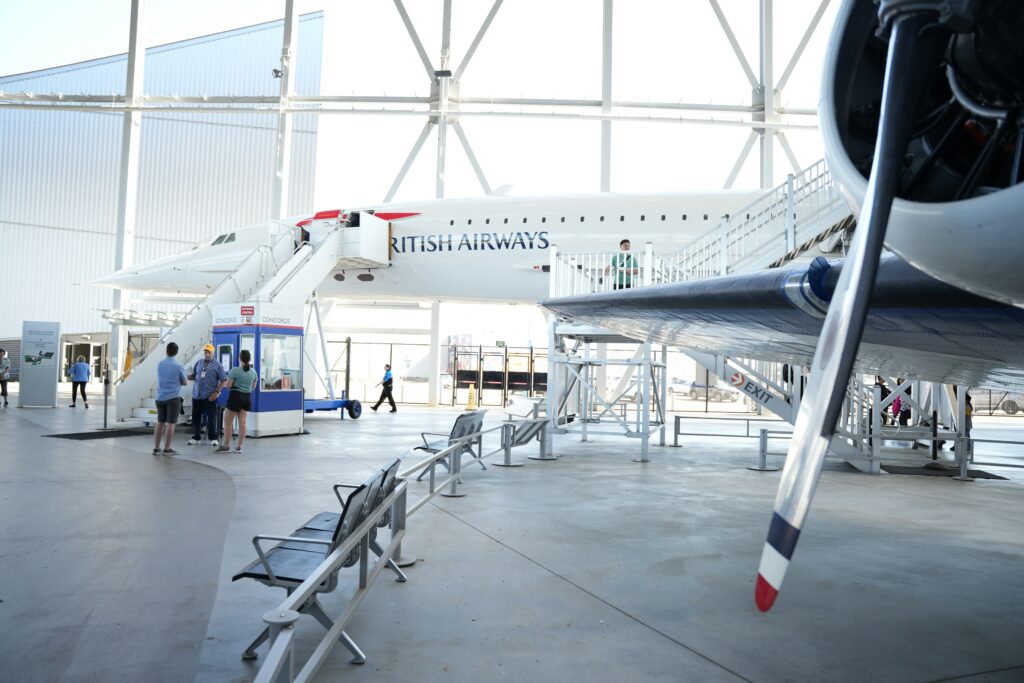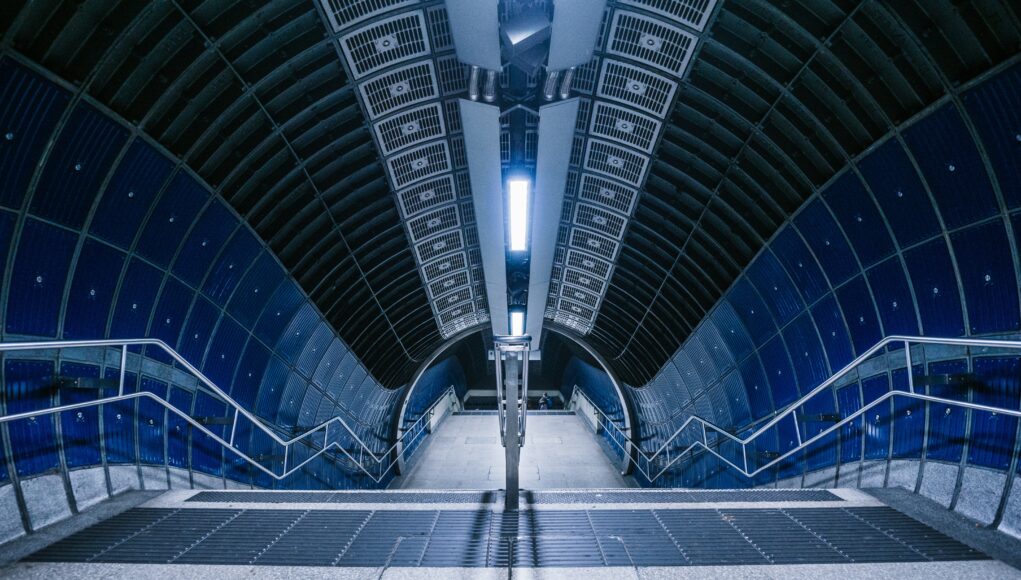As the world continues to evolve, so does the aviation industry.
The future of air travel is being shaped by groundbreaking technologies that promise to enhance safety, efficiency, and passenger experience. From electric aircraft to advanced air traffic management systems, the innovations on the horizon are set to revolutionize how people fly. This blog post takes a deep dive into the cutting-edge developments in aviation, exploring what travelers can expect in the coming years.

Electric and Hybrid Aircraft: A Greener Future
One of the most exciting advancements in aviation technology is the development of electric and hybrid aircraft. Companies like Airbus and Boeing are investing heavily in this area, with the goal of reducing carbon emissions and fuel costs. For instance, the Airbus E-Fan X project aims to create a hybrid-electric aircraft that could enter service by the mid-2020s. This aircraft is expected to reduce fuel consumption by up to 30% compared to traditional jets.
Travelers can anticipate a shift in air travel costs as airlines adopt these greener technologies. While the initial investment in electric aircraft may be high, the long-term savings on fuel could lead to lower ticket prices. Additionally, the environmental benefits are significant, as electric planes could drastically reduce the aviation industry’s carbon footprint.
Supersonic Travel: Back to the Future
After the Concorde ceased operations in 2003, supersonic travel seemed to be a relic of the past. However, companies like Boom Supersonic are working to bring it back. The Overture, Boom’s flagship aircraft, aims to fly at speeds of Mach 1.7, cutting transatlantic flight times to just over three hours. This could revolutionize long-distance travel, making it feasible for business trips and vacations alike.
With ticket prices projected to be around $5,000 for a round trip, supersonic travel will initially cater to affluent travelers. However, as technology advances and production scales up, prices may decrease, making it accessible to a broader audience. The anticipated launch of Overture in the mid-2020s could mark a new era in air travel, allowing passengers to experience the thrill of flying faster than sound.

Autonomous Aircraft: The Pilotless Future
As artificial intelligence continues to advance, the concept of autonomous aircraft is becoming more plausible. Companies like Boeing and Airbus are exploring the potential for pilotless commercial flights. While full autonomy may still be years away, the integration of AI into flight operations is already underway, enhancing safety and efficiency.
For travelers, this means potentially lower costs and increased safety. Autonomous systems can reduce human error, which accounts for a significant portion of aviation incidents. Additionally, AI can optimize flight paths, reducing fuel consumption and travel time. Although the thought of flying without a pilot may seem daunting, the technology is being developed with safety as a top priority.
Advanced Air Traffic Management Systems
With the increasing number of flights globally, air traffic management is becoming more complex. Innovations such as the NextGen system in the United States and the Single European Sky initiative aim to modernize air traffic control. These systems utilize satellite technology to improve navigation and reduce congestion in the skies.
For travelers, these advancements mean fewer delays and more efficient routing. The implementation of these systems is expected to save airlines billions in fuel costs and improve on-time performance. As these technologies roll out, passengers can look forward to a smoother travel experience, with less time spent waiting on the tarmac.

Biometric Technology: Streamlining the Passenger Experience
Biometric technology is set to transform the airport experience, making it faster and more efficient. Facial recognition systems are being implemented in various airports worldwide, allowing passengers to check in, pass through security, and board flights without the need for traditional identification methods.
For travelers, this means less time spent in queues and more time enjoying airport amenities. While some may have concerns about privacy, the technology is designed to enhance security and streamline processes. Airports like Singapore Changi and London Heathrow are already testing these systems, paving the way for a more seamless travel experience.
Hyperloop: The Future of Ground Transportation
While not an air travel technology per se, the Hyperloop concept could significantly impact how travelers reach airports. Proposed by Elon Musk, this high-speed transportation system aims to connect cities in pods traveling through low-pressure tubes at speeds exceeding 700 mph. If realized, it could reduce travel times to and from airports, making air travel more accessible.
For instance, a trip from Los Angeles to San Francisco could take just 30 minutes, allowing travelers to bypass traditional traffic and long airport commutes. While the Hyperloop is still in the development phase, its potential to revolutionize ground transportation is undeniable. This could lead to a more integrated travel experience, where air and ground transportation work seamlessly together.
Conclusion: Embracing the Future of Air Travel
The future of air travel is bright, with innovations poised to enhance safety, efficiency, and the overall passenger experience. From electric and supersonic aircraft to autonomous systems and biometric technology, the aviation industry is undergoing a transformation that will benefit travelers worldwide. As these advancements come to fruition, the way people fly will change dramatically, making air travel more accessible and enjoyable than ever before.
Frequently Asked Questions
What are the costs associated with new air travel technologies?
The costs of new technologies vary widely. For instance, electric aircraft development can exceed $1 billion for initial prototypes. Supersonic flights may have ticket prices around $5,000 initially, but costs could decrease as technology matures. Biometric systems require significant investment from airports, but they ultimately aim to save time and enhance security.
When can travelers expect to see these technologies in use?
Many of these technologies are already in testing phases, with electric and hybrid aircraft expected to enter service by the mid-2020s. Supersonic travel could become available around the same time, while autonomous aircraft may take longer to develop fully. Biometric systems are already being implemented in various airports worldwide.
What should travelers pack for future flights?
As air travel evolves, packing essentials remain similar. However, travelers should consider packing portable chargers for devices, as biometric systems may require digital identification. Additionally, lightweight clothing is advisable for electric aircraft, which may have different cabin pressure settings.
Are there safety concerns with new technologies?
Safety is a top priority in aviation, and new technologies undergo rigorous testing before implementation. Autonomous systems are designed to minimize human error, and electric aircraft will adhere to strict safety standards. Travelers can feel confident that advancements are made with safety in mind.
How will these technologies affect airport transportation?
With the introduction of systems like Hyperloop, airport transportation could become faster and more efficient. Travelers may find themselves able to reach airports in a fraction of the time, making air travel more convenient. Additionally, improved air traffic management will reduce delays and enhance overall travel efficiency.
What local customs should travelers be aware of when flying internationally?
Travelers should familiarize themselves with the customs of their destination country, especially regarding security protocols and identification requirements. Some countries may have specific regulations regarding biometric identification, so it’s essential to check ahead of time to ensure a smooth travel experience.
What insider tips can enhance the travel experience?
To make the most of future air travel, travelers should stay informed about new technologies and their implications. Signing up for airline newsletters can provide updates on innovations and promotions. Additionally, using apps that integrate biometric technology can streamline the airport experience, making travel more enjoyable.


















